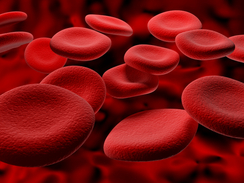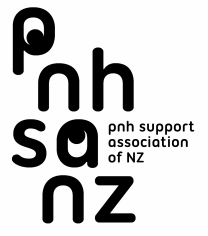Haemolysis

Haemolysis - from the Greek αἷμα (hemo) meaning "blood" and λύσις (lysis) meaning "releasing" - occurs in everyone, as red blood cells are destroyed and replaced.
In PNH, haemolysis is exacerbated by the presence of defective red blood cells (PNH clones) which the complement system mistakes for a pathogen and destroys. The proportion of defective blood cells in the bloodstream has a direct relationship to levels of haemolysis experienced by patients.
For some patients haemolysis rates are low to moderate and the bone marrow can produce new cells at the rate of destruction, maintaining fairly stable, if low, haemoglobin levels.
When heavier episodes of haemolysis occurs, it can result in significant drops in haemoglobin and red blood cells may need to be replaced via blood transfusion. This is referred to as a haemolytic crisis. Over time patients will become familiar with what may trigger a crisis for them. Various forms of stress to the body can increase rates of haemolysis.
Common stressors include:
Chronic haemolysis places a constant strain on vital organs, particularly the liver, kidneys and heart, and increases the risk of serious and life-threatening complications such as liver and/or kidney failure; heart attack; stroke; deep vein thrombosis; Budd-Chiari Syndrome (a clot or clots in the hepatic vein of the liver); or blood clots in other veins or organs.
Clots are a common complication in PNH and the leading cause of death among patients. This is a scary thing for a patient to face, but knowing the signs and symptoms of a clot and getting treatment as soon as possible can minimise the risk of further complication. If you experience swelling in the limbs or abdomen and severe and/or sudden onset of pain, you should seek medical advice immediately.
PLEASE NOTE: This information has been prepared as a guide for patients. It is not to be substituted for medical advice and accuracy is not guaranteed. Please consult with your medical practitioner for further information regarding your personal circumstances.
This information has been prepared by PNHSAA Inc., is copyright protected and is used with their permission.
In PNH, haemolysis is exacerbated by the presence of defective red blood cells (PNH clones) which the complement system mistakes for a pathogen and destroys. The proportion of defective blood cells in the bloodstream has a direct relationship to levels of haemolysis experienced by patients.
For some patients haemolysis rates are low to moderate and the bone marrow can produce new cells at the rate of destruction, maintaining fairly stable, if low, haemoglobin levels.
When heavier episodes of haemolysis occurs, it can result in significant drops in haemoglobin and red blood cells may need to be replaced via blood transfusion. This is referred to as a haemolytic crisis. Over time patients will become familiar with what may trigger a crisis for them. Various forms of stress to the body can increase rates of haemolysis.
Common stressors include:
- Bacterial or viral infections
- Lack of sleep
- Vigorous exercise
- Emotional upset
- Certain foods, usually those containing high levels of fat
- Alcohol
- Other illnesses
- Injuries or surgery
- Flying
Chronic haemolysis places a constant strain on vital organs, particularly the liver, kidneys and heart, and increases the risk of serious and life-threatening complications such as liver and/or kidney failure; heart attack; stroke; deep vein thrombosis; Budd-Chiari Syndrome (a clot or clots in the hepatic vein of the liver); or blood clots in other veins or organs.
Clots are a common complication in PNH and the leading cause of death among patients. This is a scary thing for a patient to face, but knowing the signs and symptoms of a clot and getting treatment as soon as possible can minimise the risk of further complication. If you experience swelling in the limbs or abdomen and severe and/or sudden onset of pain, you should seek medical advice immediately.
PLEASE NOTE: This information has been prepared as a guide for patients. It is not to be substituted for medical advice and accuracy is not guaranteed. Please consult with your medical practitioner for further information regarding your personal circumstances.
This information has been prepared by PNHSAA Inc., is copyright protected and is used with their permission.

